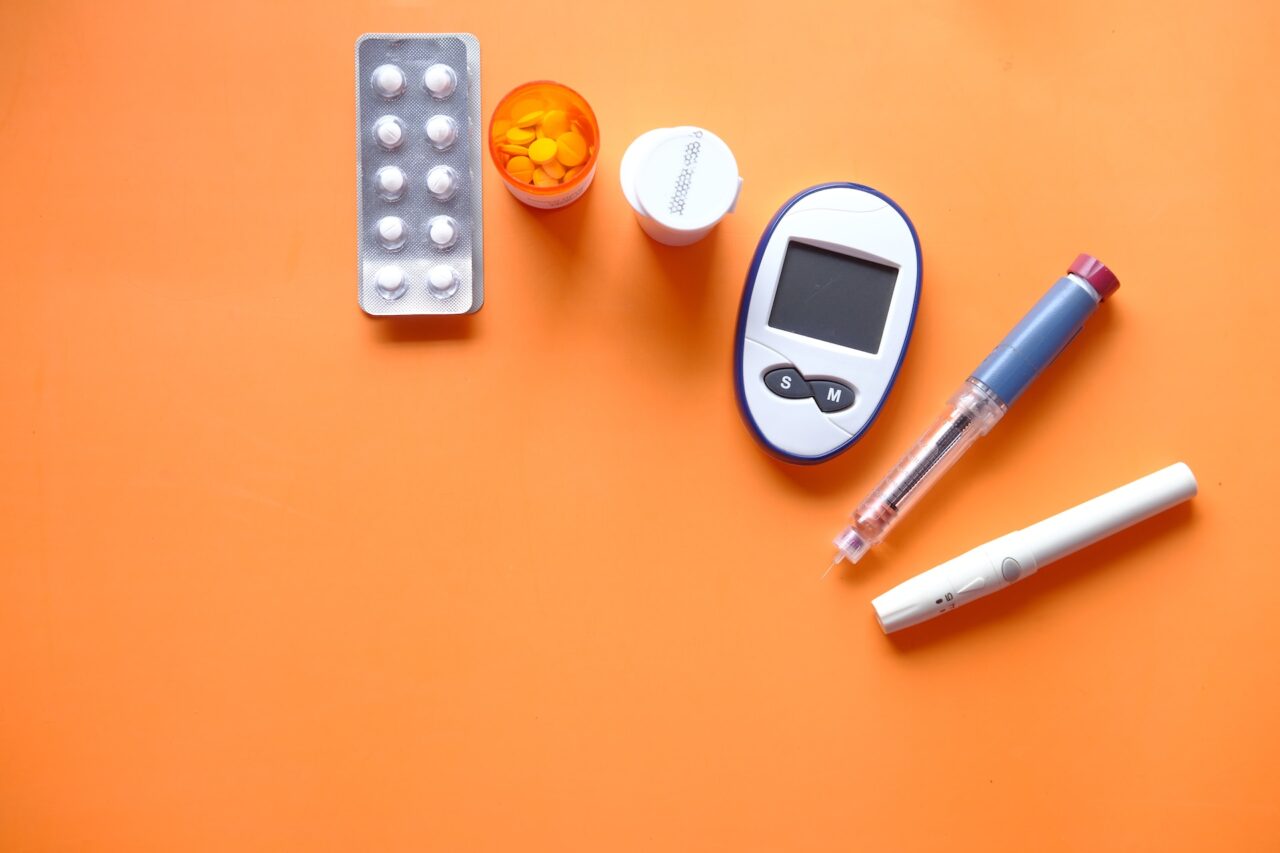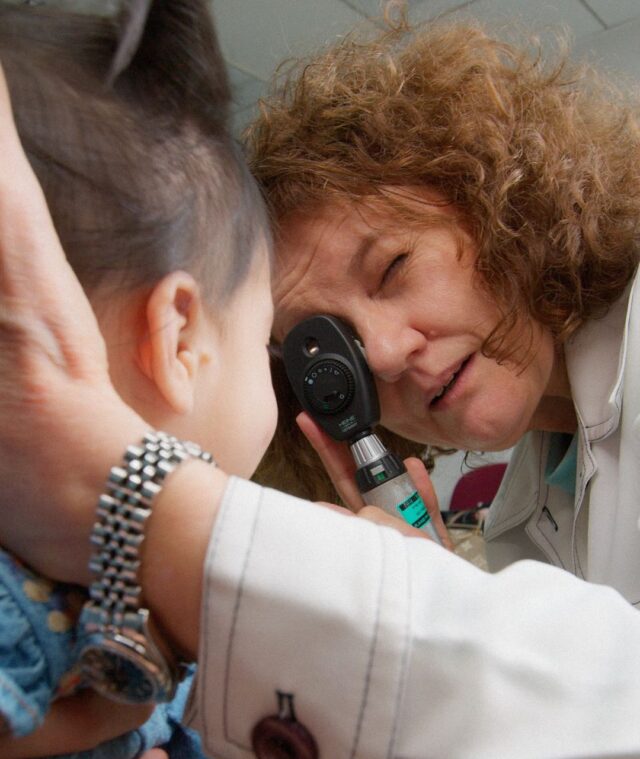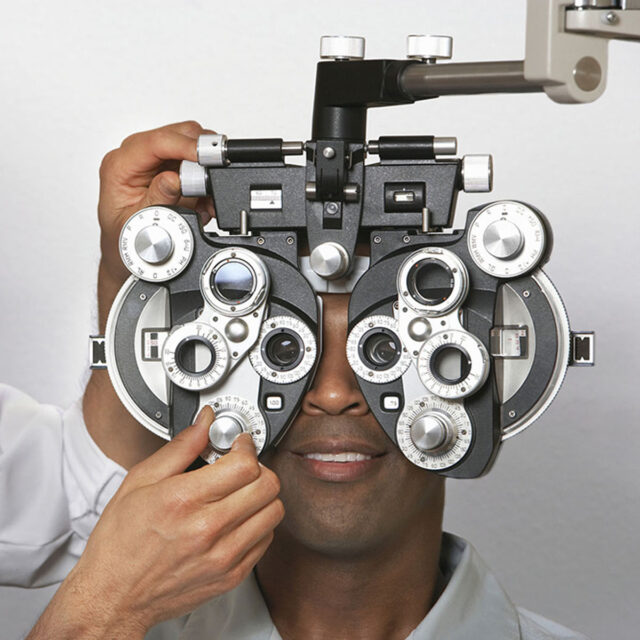Blurred vision may be due to a refractive error caused by the length of your eyeball, the shape of your cornea or the ageing of your lens. It can also be related to a condition — for older patients with diabetes, a prevalent complication that can cause blurred vision is diabetic retinopathy.
In this write-up, our eye clinic in Dubai gives you an overview of diabetic retinopathy causes, symptoms and treatment.
What Is Diabetic Retinopathy?
Diabetic retinopathy is a condition characterised by damage to the small blood vessels of the retina, followed by damage to the retina itself. The retina is the light-sensitive tissue layer found at the back of the eyeball. It is where images are projected and converted into signals the brain can process and recognise.
What Causes Diabetic Retinopathy?
High blood sugar levels cause diabetic retinopathy. Therefore, diabetic retinopathy is a complication of diabetes.
Diabetes is characterised by abnormally high blood sugar levels.
In type 1 diabetes, this is due to an insulin deficiency caused by the immune system attacking the cells that produce insulin.
In type 2 diabetes, the body may initially produce insulin correctly but cannot use it right away. This condition may eventually lead to reduced insulin production and, thus, insulin deficiency.
Gestational diabetes is diabetes that may accompany pregnancy. It typically resolves after birth.
Whatever the type of diabetes (type 1, type 2 or gestational), the high blood sugar levels lead to damage to the lining of the tiny blood vessels everywhere, and plaque buildup in blood vessels, including those in the retina.
Retinal blood vessel damage primarily occurs in three stages:
Background Retinopathy
The damage leads to tiny bulges in the blood vessels. These bulges or bumps may leak to cause slight bleeding, but they typically cause no symptoms initially, and do not affect your vision.
Pre-Proliferative Retinopathy
The damages in the retinal blood vessels become more severe and lead to more significant bleeding and leaking in the retina.
Proliferative Retinopathy
The eyes can grow new blood vessels to compensate for the blocked and dysfunctional blood vessels. This causes scarring. The new blood vessels also do not work well; they’re so weak they leak blood and fluid, causing swelling and oedema.
In its later stages, diabetic retinopathy can cause partial vision loss. Left untreated, it can cause further complications, eventually causing severe vision loss or even total blindness.
What Are the Symptoms of Diabetic Retinopathy?
In the early stages, diabetic retinopathy may not manifest any symptoms. As the disease progresses, the following are some of the common symptoms you may experience:
- Blurred vision: Your vision is not sharp and clear.
- Fluctuating vision: You fluctuate between sharp and blurred vision, often with fluctuating blood glucose levels.
- Floaters: These look like tiny spots, threads, webs or lines that float or drift across your vision. They naturally develop as you age. However, if you notice an increase in floaters, get your eyes checked because other conditions, including diabetic retinopathy, can cause floaters to increase after bleeding.
- Scotomas: These are blind spots – areas of your vision that appear dark and empty.
- Poor night vision: You find it hard to see in the dark and low-light conditions.
- Colour problems: Colours appear washed out or not as vibrant as they used to look.
- Eye pain
- Eye redness
- Vision loss: Loss of vision may be partial or total.
What Is the Main Treatment of Diabetic Retinopathy?
What is the first-line treatment for diabetic retinopathy? In the early stages, especially when you have yet to experience symptoms, you may not need treatment for diabetic retinopathy. That said, you must manage your blood sugar levels to prevent further damage to your retinal blood vessels, so check in with a diabetologist.
In the proliferative stage, your doctor may prescribe the following treatments:
Medication Injection
Your eye doctor may inject anti-vascular endothelial growth (anti-VEGF) medication into your eyes to impede the growth of new blood vessels and reduce macular oedema (i.e., swelling of the macula). The macula is the part of your retina that gives you your central vision or lets you see what’s right in front of you.
VEGF is the protein that produces new blood vessels in the body. Anti-VEGF medications include Avastin, Eylea and Lucentis.
Photocoagulation
Also known as focal laser treatment, photocoagulation involves slowing down or stopping blood vessel leaks through laser burns. While it may not restore blurred vision to normal, it can help prevent the worsening of macular swelling.
Pan-Retinal Photocoagulation
Pan-retinal photocoagulation (PRP) or scatter laser treatment induces the weak and leaky blood vessels to shrink and stop growing. If done early enough, more of the retina can be treated using a scatter laser and the complications of vitreous haemorrhage and retinal detachment may be prevented.
Vitrectomy
The vitrectomy surgical procedure involves the surgeon creating a tiny incision to drain the middle of the eye (i.e., vitreous) of blood and other fluids leaked by the abnormal retinal blood vessels and remove scar tissue that may be causing the vitreous to pull on and distort the shape of the macula (i.e., vitreomacular traction syndrome).
Takeaways on Diabetic Retinopathy Causes, Symptoms and Treatments
If you consistently have high blood sugar levels, get your eyes checked by a doctor for diabetic retinopathy. Early monitoring is key to effective management and preventing the proliferation of abnormal blood vessels that may lead to complications like vitreous haemorrhage and retinal detachment.
Remember: Left untreated, diabetic retinopathy can quite likely lead to blindness.
Gulf Family Clinic is a leading eye clinic with an international team of doctors experienced in managing and treating various eye conditions, including diabetic retinopathy. It is also one of the top specialists in laser eye surgery such as LASIK in Dubai.
Contact Gulf Family Clinic to book your screening appointment now.








